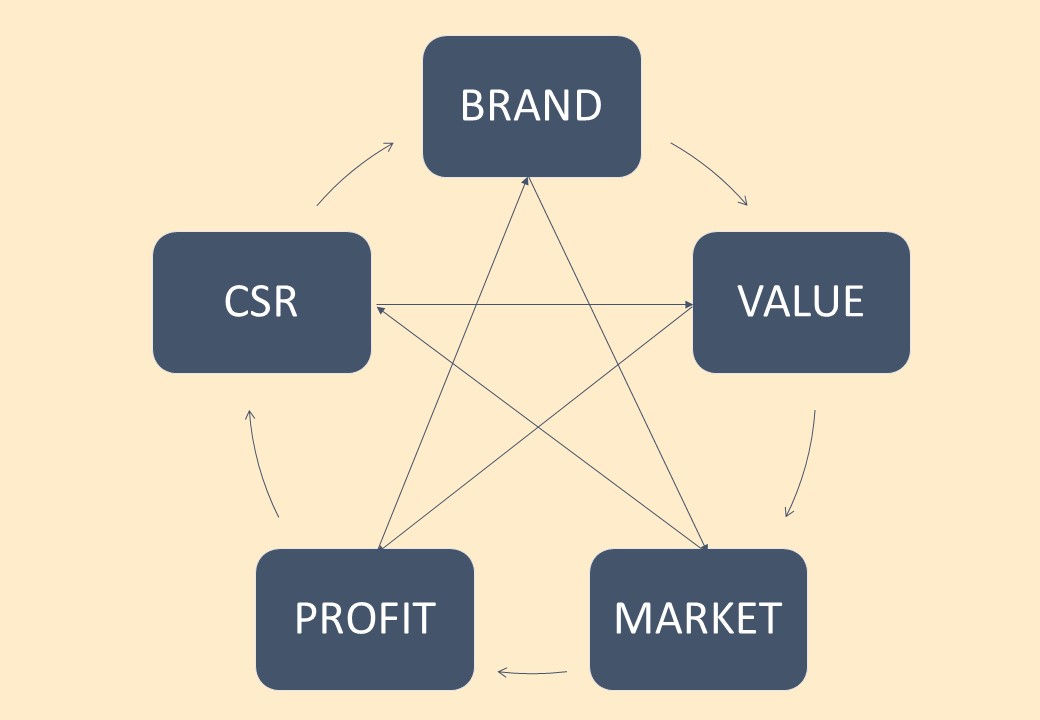‘Strategy without tactics is the slowest route to victory.
Tactics without strategy are the noise before defeat.’ —Sun Tzu
As discussed in the previous blogs, the business goal of social responsibility is to encourage the company’s actions toward the positive impact of consumer, community and employee responsibility.
We have already established that CSR is a powerful tool for not only creating a huge impact on the community but also for the company. But firstly, it is imperative to determine the top three business objectives of the company and develop CSR goals that will contribute to the achievement of those business objectives.
The business needs to be creative, and adhere to their core values, but a few spectra of interesting policies are listed here.
Voluntary Hazard Elimination:
By virtue of the nature of the activity, establishments sometimes have harmful production practices. If your business demands such practices, the company’s best bet is to reduce and eliminate these practices and work to diminish their effects.
Eg: If a company creates pollution of any kind – air, water, noise, etc. – it could analyse, research and work towards reducing their carbon footprint and make the environment the core of their CSR strategy.
Infrastructure Development:
It is a given that for a business to thrive and grow, it is extremely essential to develop the infrastructure around the plant. One of the most impactful strategy, the performance and growth of which is literal.
Eg: If your industry is labour-intensive, creating better facilities for them or adopting the village that majority of them come from is productive for the company, the employees and the community.
Community Development:
One of the most vital fundamentals of a country’s growth is community development. It is a long-term investment which definitely has a long-lasting influence.
of a country’s growth is community development. It is a long-term investment which definitely has a long-lasting influence.
Eg: Setting up a school or any kind of skill development is an asset in every community.
Social Education and Awareness:
Awareness is probably one of the most under-rated social doings. Integrating a social awareness strategy into the business model can aid companies in monitoring active compliance with ethical business standards and applicable laws.
Eg: An agro-based industry could promote and encourage fitness, nutrition and a healthy lifestyle.
Creating Shared Value:
Corporate responsibility interests are often referred to as creating shared value or CSV, which is based upon the connection between corporate success and social well-being. Since a business needs a productive workforce to function, health and education are key components to that equation. Profitable and successful businesses must thrive so that society may develop and survive.
Eg: A company-sponsored contest involving a project to improve the management and access of water used by a farming community, to foster public health.
Philanthropy:
Businesses involved in philanthropy make monetary contributions that provide aid to local charitable, educational and health-related organizations to assist under-served or impoverished communities. It is extremely important to examine, inspect and scrutinize the work and morality of the organisation to which the donation is given.
Eg: A company could encourage a local foundation, with a great reputation, to help ease their hassles and help them help their cause.
These are but just a few examples from an array of strategies that the company could undertake for their Corporate Social Responsibility.
Does your organization employ Strategic CSR? If you would like to incorporate CSR into your strategic plan, feel free to contact us anytime at uplus.collective@gmail.com

